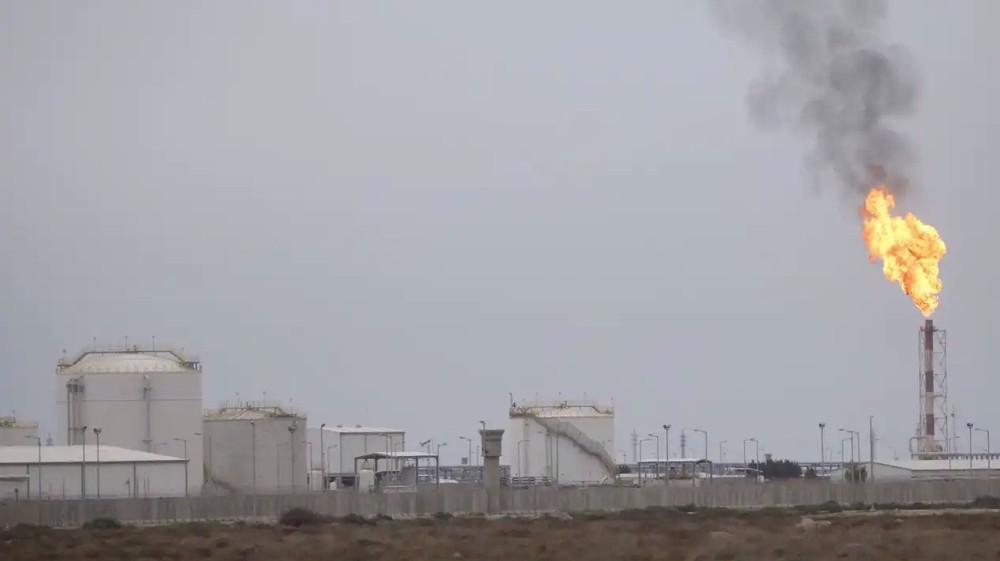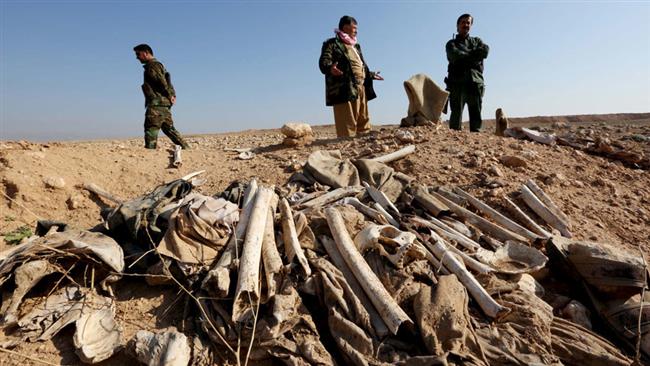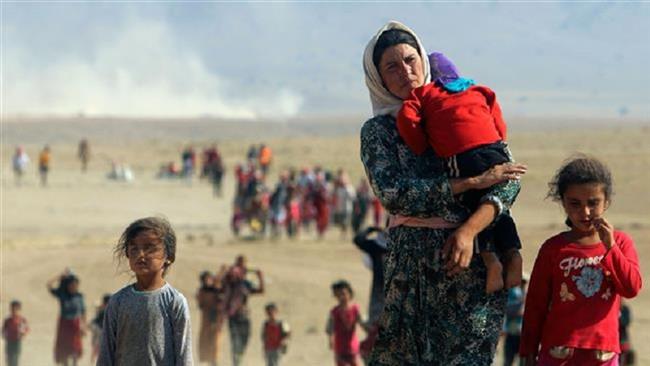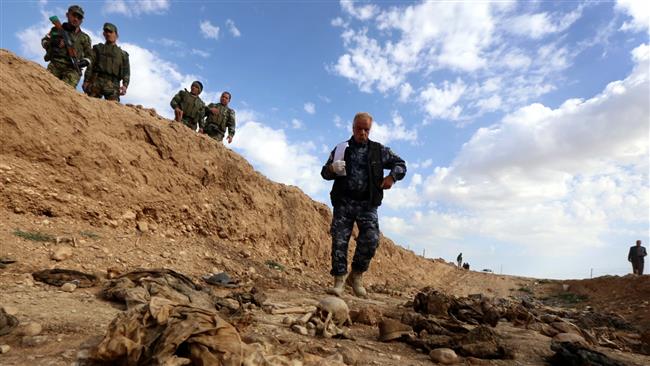Freed Izadi women, children reunite with families in northern Iraq
A group of Iraqi women and children from the Izadi minority, who were freed earlier this week after five years of captivity at the hands of the Daesh Takfiri terrorist group in neighboring Syria, have been reunited with their families in Iraq.
Overjoyed families met their loved ones at a rural truck stop on the road linking the Kurdish-populated northern Iraqi town of Sinjar to Dohuk city on Saturday.
Few parents were there to welcome their children as many of them are still missing in territories being held by Daesh, or have been confirmed killed. A number of Izadi parents have already sought asylum in Western nations, in the hope that their children will be able to join them one day.
The group of three Izadi women and 18 children crossed into Iraq from Syria on Friday. They were among thousands of civilians who fled the last vestige of Daesh's territorial rule at the besieged eastern Syrian village of Baghouz near the Iraqi border.

One of the former captives, Milad Hussein Khalaf, said the militants had separated him from his family, when they were abducted in 2014, and sent the then-8-year-old to be raised by a Daesh family.
The 13-year-old teenager noted that there were still children in Baghouz, but he did know how many.
“Thank God, they have returned and they are among us. This child does not have a mother or a father. We are going to be his parents,” Khalaf's cousin, Noura Ali, said.
She added, “We thank all the sides that worked together to rescue them, and we hope that the rest of the missing people will return.”
Hosni Murad, the brother of Nadia Murad, an Iraqi Izadi human rights activist and one of the 2018 Nobel Peace Prize laureates, also welcomed home his 10-year-old nephew, Khashman Samir.
Murad said, "Samir's four siblings and his parents were all killed by Daesh. They were all victims of Daesh. He's the first and the last one to return from the family.”

Many fear that the boys were trained in military camps run by Daesh, though they all denied it.
Susan Fahmy, a coordinator for the non-profit Khalsa Aid, said she was certain all the boys were sent to Daesh training, and that they needed years of rehabilitation.
She said some Izadi boys had been caught communicating with the terror group a year after they returned.
Fahmy noted that women were being pressured to give up their children fathered by Daesh terrorists.
Murad said he was certain his nephew, and all the boys, were given military training by Daesh, and he believed many young men were returning to the community harboring sympathies for the extremists.
“Yes, in truth, we're afraid they'll do something. Their mindset is Daesh. I mean it's been five years they've been training with them,” he pointed out.
Murad noted that another nephew of his, aged 16, turned down his pleas to come home, choosing to stay with Daesh until the end.

“He replied: ‘You are all infidels,’” Murad said, recalling the boy's response. He hasn't heard from him in months.
The Paris-based NGO International Federation for Human Rights said in a report on October 25 last year that foreign militants, including many of European origins, were responsible for atrocities and acts of brutality carried out by Daesh against Izadi Kurds.
Last August, an official at the Endowments and Religious Affairs Ministry of the semi-autonomous Kurdistan Regional Government said more than 3,000 members of the Izadi minority group had remained unaccounted for ever since Daesh overran their hometowns in northern Iraq in 2014.
Khairi Bozarni said more than 2,500 Izadi Kurds had lost their lives at the hands of Daesh, while another 6,000 – mostly women and children – had been abducted.
He noted that 66 places of worship for Izadis had also been desecrated or destroyed by the terror group.
Bozarni called on the international community as well as the central government in Baghdad to determine the fate of missing Izadis as soon as possible.
Back in August 2014, Daesh terrorists overran Sinjar, killing, raping, and enslaving large numbers of Izadi Kurds.
The region was recaptured in November 2015, during an operation by Kurdish Peshmerga forces and Izadi fighters.
VIDEO | Golestan: Iran's dreamlike garden
VIDEO | Fate of Gaza ceasefire
VIDEO | South Korea follows US demand, boosts military expenditure
VIDEO | Iran hosts 7th BRICS Meeting on Mega-Science Cooperation
Iran after a 'strong region free from foreign interference': FM
Tehran Stock Exchange index hits historic high
3 civilians injured by Israeli fire during incursion into Syria’s Quneitra
Iran’s wheat imports at $424 mln in Apr-Oct: IRICA

















 This makes it easy to access the Press TV website
This makes it easy to access the Press TV website